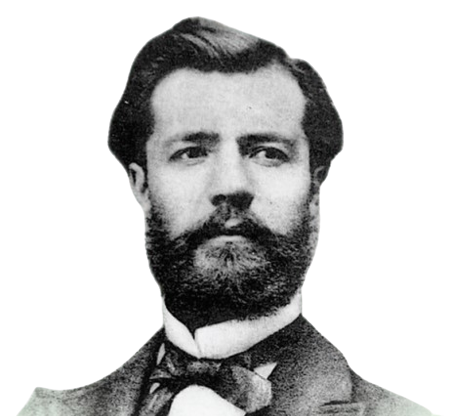ABOUT MASTER OF BUSINESS ADMINISTRATION DEPARTMENT

Henri Fayol (July 29, 1841 November 19, 1925) Engineer and theorist of business administration. He was born in Istanbul, Ottoman Empire. His work as a mining engineer led to his appointment as managing director of a major French mining and meteorological group. From his writing emerged his Theory of Administration for managers, which had five main elements: Planning: Organisation; Command; Co-ordination and Control. Of management he believed that it should be applied not only to business but also society and into the home, where it should be taught to children.
The Department is making strides in becoming a centre of excellence in nurturing young managers to contribute for the betterment of Indian corporate sector. Since its inception, the department has succeeded in turning out students from various streams into management graduates with good communication skills conceptual knowledge and practical exposure. you can specialize it with a concentration in Accounting, Finance, Human Resource Management or Marketing. Then, you can harness the power behind proven management strategies to bring value and expertise to your organisation.
The MBA program at GIITS is an attempt to imbibe all the values and ethos that have made it an epitome of excellence. The department believes in the four pillar philosophy i.e. Academic Excellence, Research and innovation, Professional competence, Social Commitment and Industry Institute Interaction. MBA is a multidisciplinary course creates demand for getting placed in managerial roles in renowned organisations and it identifies entrepreneurial spirit among the students and conduct entrepreneurship development programmes.
VISION
The department is committed to educate and train innovative and competent human resource globally suitable for industry business and service sector and to equip and encourage them to start their own ventures in urban or rural areas benefiting both the classes and masses.
MISSION
M1: Inculcating skills: To Inculcate managerial and entrepreneurial skills with zeal to attain excellence in business administration
M2: Motivating to gain professional competence: To motivate students gain professional competence through constant knowledge update, empathic leadership qualities and Fostering Strategic relationships with the industry and practitioners.
M3: Cultivating Values: To cultivate personal integrity, ethical consciousness, care for environment and Society among future managers.
PEOs for MBA
PEO-1: To enhance conceptual and practical knowledge of students in the fields of Business and Management
PEO-2: To adapt to a rapidly changing business environment with new skills and competencies
PEO-3: Motivating the students to acquire decision making leadership& entrepreneurial capabilities
PSOs for MBA
PSO-1 :Enabling managerial decision making through the application of knowledge of managing discipline.
PSO-2 :Set up business enterprise and manage diversified growth of entrepreneurship.
PSO-3 :Nurturing industry ready professionals with Business and Management acumen, who shall hold high degree of human values and societal consciousness in their professional and personal lives.
PROGRAM OUTCOMES (POs): Common to MBA
Programme Outcomes are meant to achieve the desired change that a student should reflect at the end of the programme. Every student should reflect:
PO1: Leadership and Management: Develop the students with requisite knowledge, skills & right attitude necessary to create effective leadership that enables students to prove, develop and sustain in a global environment.
PO2: Problem analysis: Identify, formulate, review research literature, and analyze complex business problems and reach substantiated conclusions using the principles and concepts of business and management.
PO3: Design/Development of solutions: Design solutions for complex business problems and design system or processes that meet the specified needs with appropriate consideration for the law of the land, and the cultural, societal, and environmental considerations.
PO4: Scanning and solution to complex problems: Use research-based knowledge and research methods including design of statistical applications for analysis and interpretation of data, and thereby arrive at definitive alternatives to provide valid conclusions.
PO5: Modern Concepts and usage: Create, select, and apply appropriate techniques, resources, and modern management processes and IT tools including prediction and modeling to complex business problems and boundaries.
PO6: Entrepreneurship:Evaluate and Execute Ideas for Entrepreneurship
PO7: Environment and sustainability: Evaluate business environment and opportunities and devise strategies for responding effectively to problems, threats, and opportunities. Understand the impact of the professional methods in providing solutions keeping in view the societal and environmental contexts, and demonstrate the knowledge and need for sustainable development.
PO8: Professional Ethics: Apply ethical principles and commit to professional ethics and responsibilities and norms of the management practices.
PO9: Individual and team work: Summarize and apply theories of team composition, process, and motivation (including inclusivity and diversity) to effectively manage work teams.
PO10: Communication: Communicate effectively on complex business management activities with the industry and with society at large, such as, being able to comprehend and write effective reports and design documentation, make effective presentations, and give and receive clear instructions. Construct and communicate a logical, relevant, and professional quantitative assessment of business information in an effective manner.
PO11: Project management and finance: Demonstrate knowledge and understanding of the business and management principles and apply those to one's own work, as a member and leader in a team, and to manage projects in multidisciplinary environments.
PO.12: Continuous learning: Recognize the need for, and have the preparedness and ability to engage in independently and also keep continuous learning in the broadest context of changes happening in business management.
